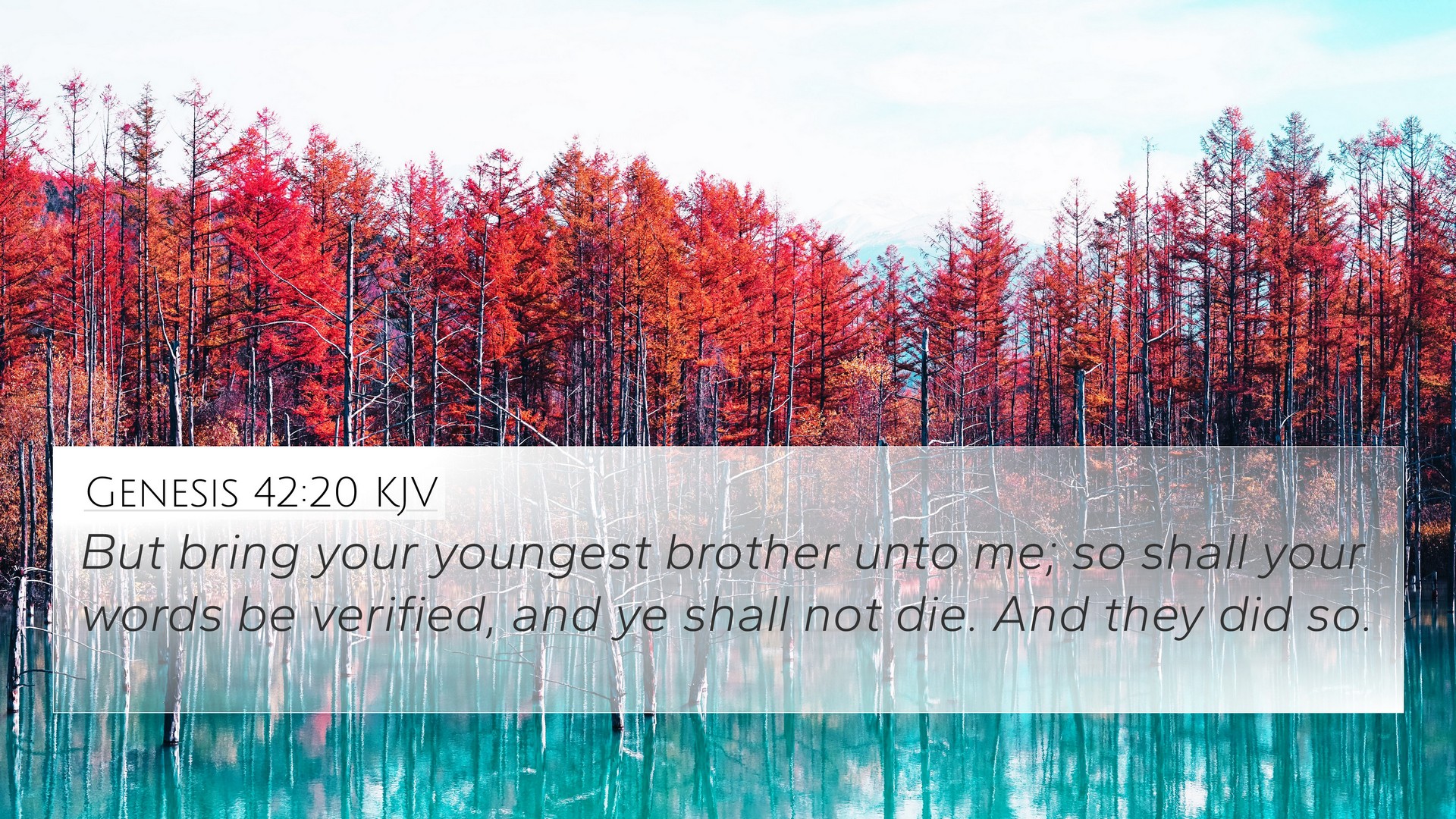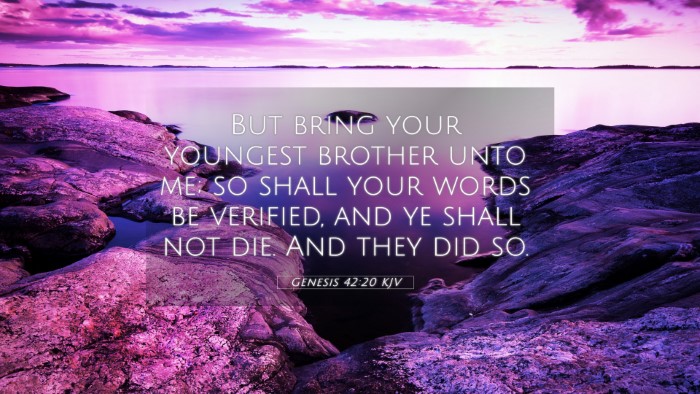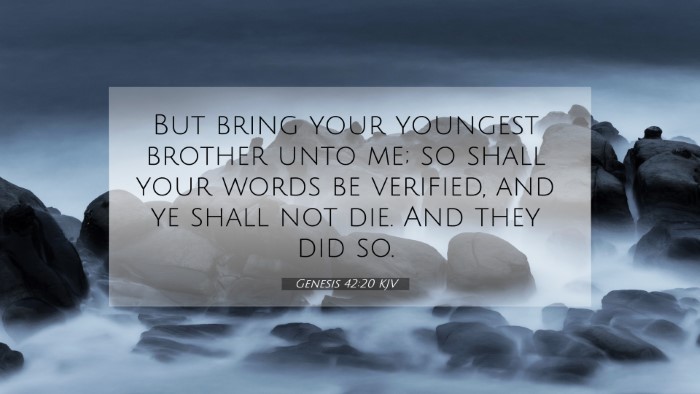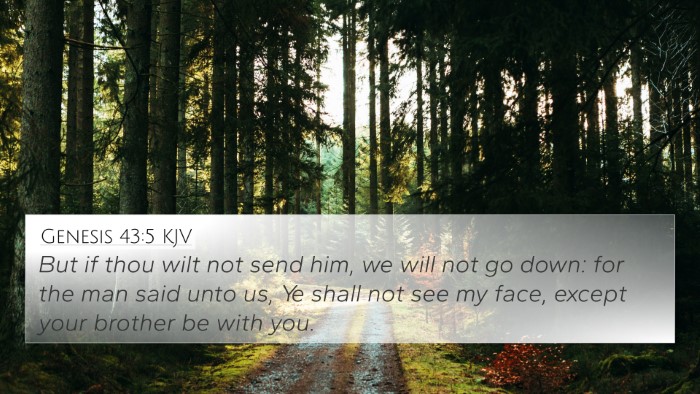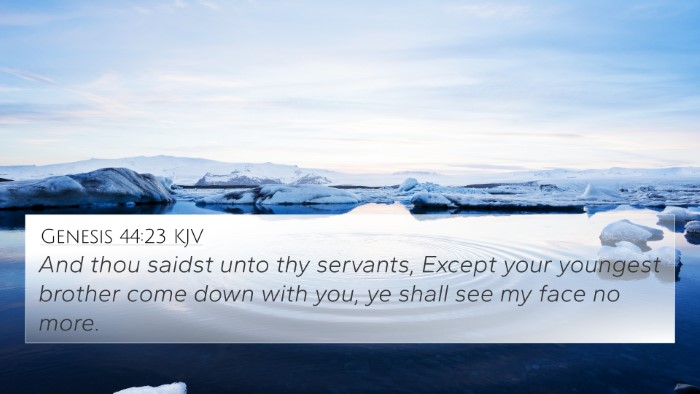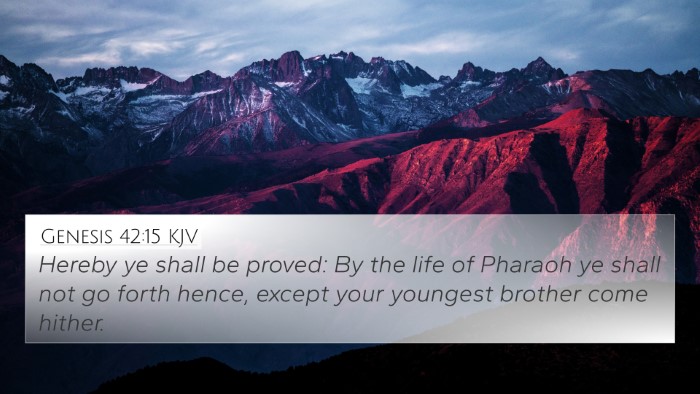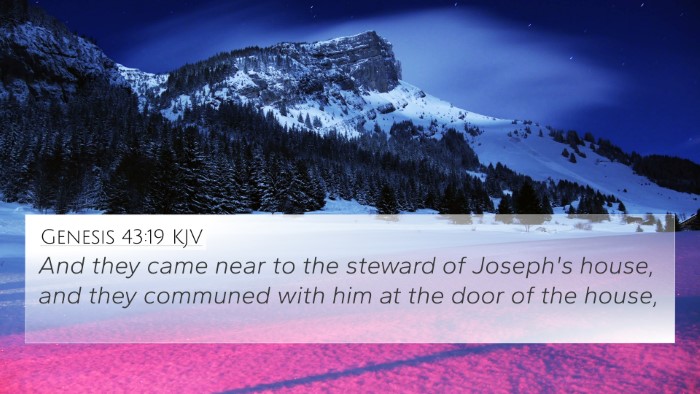Understanding Genesis 42:20
Genesis 42:20 states: "But bring your youngest brother to me; so shall your words be verified, and you shall not die." And they did so. This verse is part of the narrative where Joseph encounters his brothers in Egypt during a time of famine. The request to bring their youngest brother serves as a test of their integrity and a means to verify the truth of their prior statements.
Commentary Insights
The verse is primarily focused on Joseph’s wisdom in handling his brothers, highlighting themes of repentance, reconciliation, and testing. The following commentaries provide an in-depth look into the meaning of this verse:
- Matthew Henry: Henry explains that Joseph's request is not only a test of the brothers' honesty but also an opportunity for them to reveal their character. It indicates a transition from guilt to hope, urging the brothers to confront their past actions. Their willingness to comply reveals growth and a chance to seek redemption.
- Albert Barnes: Barnes notes that the act of verifying their words symbolizes divine providence. The demand for the youngest brother is a pivotal moment that sets the stage for future interactions and highlights the importance of family bonds in the face of adversity.
- Adam Clarke: Clarke emphasizes the psychological aspect of Joseph's actions. By asking for their youngest brother, Joseph is not only ensuring their honesty but is also playing a strategic role in restoring familial ties while addressing their previously committed wrongs.
Bible Verse Cross-References
Genesis 42:20 connects with several other scriptures to enhance understanding. Here are some relevant cross-references:
- Genesis 37:3-4: The favoritism shown to Joseph and his brothers' jealousy sets the stage for their later actions against him.
- Genesis 43:8-9: Judah's willingness to take responsibility for Benjamin expands on the themes of sacrifice and brotherly love.
- John 1:45: The theme of recognizing one’s kin, as Joseph eventually recognizes his brothers, parallels with Nathaniel's acknowledgment of Jesus.
- Acts 7:9-10: Stephen’s recounting of Joseph's story emphasizes how his brothers' jealousy ultimately led to their own distress.
- 1 John 3:16-18: The theme of self-sacrifice and love among brethren resonates with Joseph's overarching narrative towards reconciliation.
- Romans 8:28: The divine orchestration of events throughout Joseph's life, where all things work together for good, aligns with Joseph's actions towards his brothers.
- Matthew 5:24: The call to reconciliation is mirrored in Joseph's insistence on addressing unresolved family issues before proceeding.
Thematic Connections
This verse includes several thematic connections applicable to larger biblical narratives:
- Testing and Integrity: Similar to other tests of faith seen throughout Scripture, Joseph's request acts as a catalyst for revealing the hearts of the brothers.
- Forgiveness and Reconciliation: The overarching narrative reflects the biblical principle of forgiveness and the potential for restoration even after betrayal.
- Divine Providence: Joseph’s ability to see God’s hand in his circumstances encourages readers to find purpose in their struggles.
Conclusion
Genesis 42:20 presents profound insights into human character, relationships, and the underlying themes of redemption and providence. By utilizing tools for Bible cross-referencing, such as biblical concordances and reference guides, readers can explore the interconnectedness of Scripture, enhancing their journey through themes of forgiveness, integrity, and testing.
Engaging in Bible cross-reference study allows for a deeper understanding of how verses relate to one another, providing a robust framework for interpreting biblical themes.
